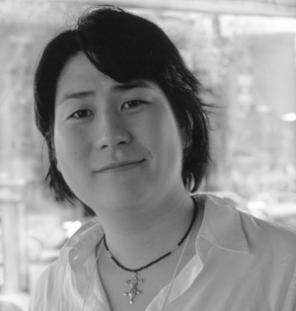“Aside from not shoveling snow, it is the opportunity to be part of the large community of scholars interested in disability studies in the UC system as well as the large community of disabled activists in the Bay Area,” Nakamura said in an interview with the Haas Institute. “The UC has a commitment to public service that resonates strongly with my own sentiments regarding the role of public anthropology and scholarship.”
Nakamura was ultimately wooed to campus by the opportunity to become the endowed chair of the Disability Studies research cluster within the Haas Institute for a Fair and Inclusive Society, a campus research institute that aims to identify and eliminate the barriers to an inclusive, just, and sustainable society. Nakamura, who will also serve as a Professor of Anthropology, will be starting her new position on Jan. 1, 2016.
“Through my hiring, the university and the Haas Institute have made a major investment in disability as one of the major rubrics of a fair and inclusive society,” Nakamura said. “My own goals for the next ten years are to build on Berkeley’s strong tradition of humanistic disabilities studies by incorporating perspectives from the social sciences, while also leveraging the UC’s strength in engineering, art, and design.”
Nakamura currently serves as a Professor of Anthropology and East Asian Studies and Chair of LGBT Studies at Yale University, where she researches disability movements in contemporary Japan. She has written four books and is an award-winning ethnographic filmmaker.
Nakamura came to her research on disability through prior study of feminist and queer theory. Her first book, which traces the history of the deaf community in Japan, examined the politics of identity, deafness, and sign language. From there, she became interested in what received the label of “disability” and what didn’t, which led her to a second project on a community-based recovery program for people suffering from mental illness in northern Japan.
According to English professor Susan Schweik, who served as a co-leader of the Disability Studies research cluster, Nakamura’s “cutting-edge, topical work” is deeply intersectional, addressing race, culture, sexuality, and gender as well as disability, and is rooted in her commitment to social justice. Nakamura’s interdisciplinary research interests “cover a rare range of subjects, accompanied always by a sharp set of tools and methods for analyzing ‘disability’,” Schweik said.
At the moment, Nakamura is finishing up a book that explores trans identity in Japan through the lens of disability, which she hopes to finish before starting at Berkeley. Her next project will explore the role of robotics, prosthetics, and augmentation in the lives of disabled and elderly people in Japan and the United States. She says that both countries have invested heavily into various forms of personal technologies, which may end up fundamentally changing what we think of the human experience. “What is memory when Siri can pull up every detail for you? What is kinship and the ethics of care when we will rely on robotic surrogates as we age?” Nakamura said. “I am looking forward to creating an interdisciplinary lab at Berkeley where we can think through these issues, help create prototypes that explore various aspects of emergent personal technologies, and serve as an ethical and moral voice in public debates about these issues in the future.”
UC Berkeley has committed to creating a central lab space for her research focused on disability, access, and design. Nakamura plans to make it a hub for an interdisciplinary disability studies that will draw from engineering, the social and physical sciences, as well as the arts, humanities, and design worlds. “I hope that it will bring faculty, students, and community members together to work on not only solutions for the continuing problems of inclusion and access for disabled people but also to collaborate on the positive expressive and creative aspects of the disability experience,” Nakamura said in a statement posted on her website.
Katherine Sherwood, a campus Professor of Art Practice and chair of the search committee for the Haas Institute’s Disability Studies research cluster, expressed awe at Nakamura’s range of interests and research. “When she arrived in our pool of candidates we were immediately impressed,” Sherwood said. “She is a perfect choice to head our cluster both for her intellectual rigor, her polymathic range of interests and in her innate ability to lead.”
Professor john a. powell, Director of the of the Haas Institute noted, “The breadth and intersectionality of Karen’s scholarship underscores the promise of our vision at the Haas Institute—a robust interdisciplinary and intercommunity approach to both research and social change. We are excited to see where Karen's leadership will push us in our work.”
----
By Sara Grossman, October 2015


